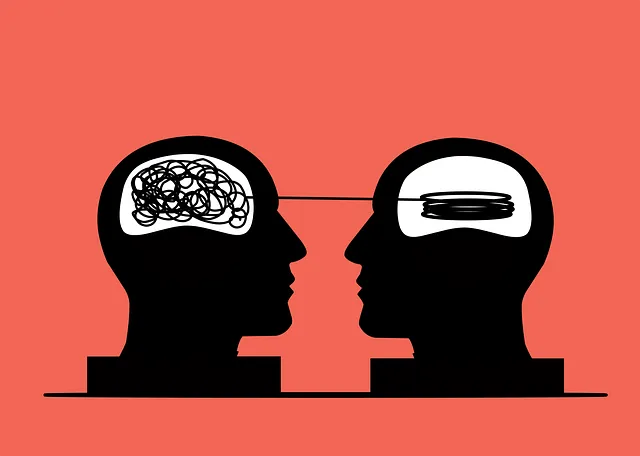Cultural competency in healthcare, particularly within mental health services, is crucial for providing respectful, effective care to diverse patients. Kaiser's inpatient mental health approach, demonstrated through its tailored treatment plans and dedicated units, incorporates strategies like effective communication and stress management to create a safe, supportive environment for all, regardless of cultural background. Training in cultural competency is vital, improving patient outcomes and trust, enhancing therapeutic alliances, and bettering adherence to treatment plans. Organizations like Kaiser measure the success of these initiatives through evaluations that track mental health awareness, wellness coaching, and compassion cultivation practices, fostering continuous improvement in inclusive, compassionate care environments.
Cultural competency training in healthcare is more than a buzzword; it’s an essential tool for providing quality care. This article explores the critical need for such training, using Kaiser’s Inpatient Mental Health Services as a case study. We review their initiatives and delve into how training programs impact patient outcomes. Additionally, we discuss measuring success through evaluation metrics, emphasizing that understanding cultural competency is key to delivering effective, equitable healthcare, especially in diverse communities. Learn about Kaiser’s approach and the broader implications for mental health services.
- Understanding Cultural Competency in Healthcare: A Necessary Foundation
- Kaiser's Inpatient Mental Health Services: An Overview
- Training Programs and Their Impact on Patient Care
- Measuring Success: Evaluating Cultural Competency Initiatives
Understanding Cultural Competency in Healthcare: A Necessary Foundation

Cultural competency in healthcare is a foundational concept that ensures providers can offer respectful and effective care to patients from diverse backgrounds. It involves understanding and appreciating cultural differences in beliefs, values, behaviors, and communication styles, which are integral aspects of an individual’s identity. In the context of mental health services, this understanding becomes even more critical, as cultural sensitivity significantly impacts patient outcomes and satisfaction.
For instance, Kaiser’s approach to inpatient mental health care highlights the importance of cultural competency through its tailored treatment plans that consider Parker’s (a hypothetical patient) unique cultural needs. Effective communication strategies and stress management techniques are integral parts of this process, enabling healthcare providers to create a safe and supportive environment for all patients, regardless of their cultural background.
Kaiser's Inpatient Mental Health Services: An Overview

Kaiser’s Inpatient Mental Health Services offer a comprehensive and specialized care approach for patients in need of intensive treatment. With facilities across its network, including dedicated inpatient units, Kaiser provides a supportive environment for individuals facing various mental health challenges. The services cater to a range of conditions, from acute episodes of depression and anxiety to more complex cases of bipolar disorder or schizophrenia. Patients benefit from round-the-clock monitoring, individualized therapy plans, and access to a multidisciplinary team comprising psychiatrists, psychologists, social workers, and nurses.
One notable aspect is Kaiser’s commitment to cultural competency training for its healthcare providers. This initiative ensures that staff are equipped to offer sensitive and effective support to a diverse patient population. Through programs focusing on self-esteem improvement, community outreach program implementation, and mental illness stigma reduction efforts, Kaiser aims to create an inclusive environment where all individuals can access and receive high-quality mental health care.
Training Programs and Their Impact on Patient Care

Healthcare provider cultural competency training is a vital component in improving patient care, especially for diverse populations within hospitals and clinics. Programs designed to enhance cultural awareness among healthcare staff have shown significant benefits in various settings, including inpatient mental health facilities like Kaiser’s Parker campus. These initiatives often include comprehensive training on topics such as unconscious bias, cross-cultural communication, and understanding different cultural practices related to health and healing.
The impact of these training programs is profound, leading to better patient outcomes. When healthcare professionals are equipped with cultural competency skills, they can navigate complex interactions with patients from diverse backgrounds more effectively. This leads to improved trust, enhanced therapeutic alliances, and increased adherence to treatment plans. Moreover, such training encourages the implementation of Community Outreach Programs and facilitates Risk Management Planning for Mental Health Professionals, ensuring a holistic approach to patient care that incorporates self-care practices for providers.
Measuring Success: Evaluating Cultural Competency Initiatives

Evaluating the success of cultural competency initiatives is a critical step in ensuring their effectiveness and long-term impact. Measuring success goes beyond mere participation; it involves assessing meaningful changes in attitudes, behaviors, and outcomes among healthcare providers. Organizations like Kaiser Permanente, with its extensive inpatient mental health services (does Kaiser have inpatient mental health Parker?), can employ various methods to gauge progress. Pre-post assessments, focus groups, and feedback from both staff and patients offer valuable insights into the initiative’s effectiveness.
By integrating metrics that capture improvements in Mental Health Awareness, Mental Wellness Coaching Programs Development, and Compassion Cultivation Practices, healthcare organizations can track specific gains related to cultural competency. These evaluations enable them to identify areas of success and those requiring further attention, ensuring continuous improvement and fostering a more inclusive and compassionate care environment.
Healthcare provider cultural competency training is a vital component of modern medical care, ensuring equitable and quality patient experiences. As organizations like Kaiser strive to improve services, such as their inpatient mental health programs in Parker, ongoing training and evaluation are key. By implementing comprehensive initiatives, healthcare providers can navigate diverse patient populations effectively, fostering better outcomes and stronger connections within a complex cultural landscape. This article highlights the importance of these efforts and provides insights into successful strategies for enhancing cultural competency in healthcare settings.






